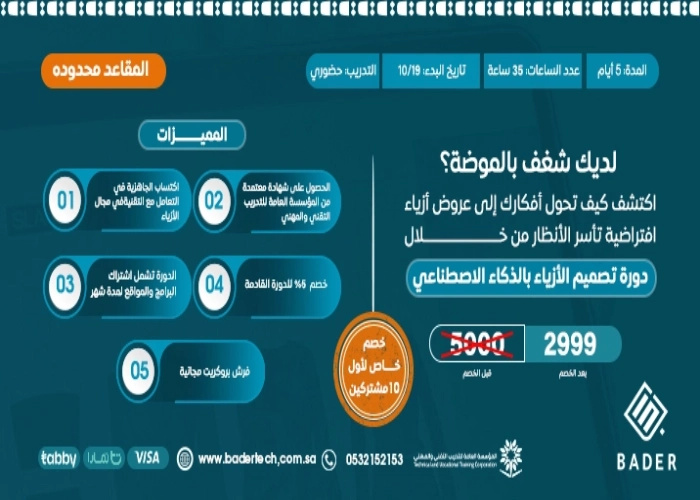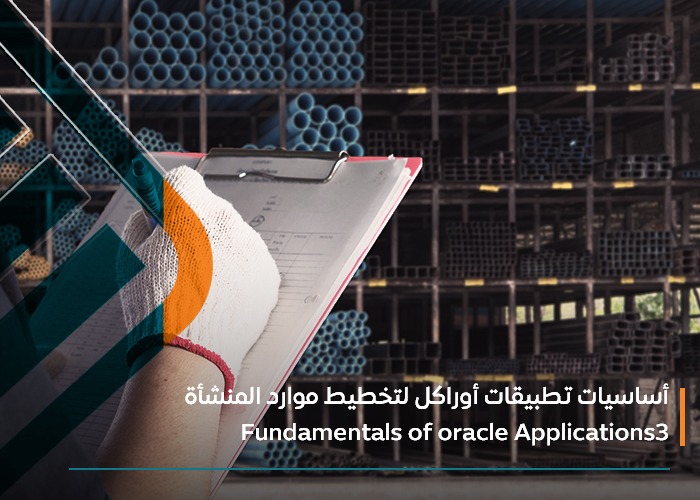About course
In today's work environment, conflict management is one of the essential skills that both leaders and employees must master to ensure a healthy and productive workplace. Many employees and managers face workplace conflicts that can negatively affect productivity and job satisfaction. Therefore, effective conflict management strategies are fundamental to directing these conflicts toward a positive path that enhances team collaboration and fosters a spirit of teamwork.
Through this specialized course on conflict management in the workplace, we will explore the best methods and techniques that enable participants to understand the causes of conflict and how to deal with personal and professional disputes. We will also review effective communication tools and innovative solutions to handle conflicts in a way that ensures ongoing collaboration between employees and achievement of common goals.
Whether you're an employee or a leader, learning how to resolve conflicts and manage disputes is a crucial step towards a more harmonious and productive work environment.
Types of Conflicts in the Workplace
Workplace conflicts are one of the challenges many organizations face, and they are a natural phenomenon arising from differences in opinions, values, or goals between individuals or teams. Although conflict management is a crucial part of human resource management, knowing the types of conflicts in the workplace is an essential step to effectively address these issues and achieve a healthy and productive work environment.
-
Personal Conflicts
Personal conflicts in the workplace occur when employees clash due to their personalities or differences in communication styles. These conflicts often arise from direct interaction between individuals who cannot understand or coordinate with one another. Managing conflicts in this case requires effective communication and neutrality in dealing with the different parties. -
Task-related Conflicts
These conflicts arise when individuals disagree on how to perform tasks or define responsibilities. This may happen when individuals compete for resources or when there is no clear distribution of roles, leading to tension between employees. Conflict in this case can be managed by clarifying goals and defining responsibilities accurately. -
Work Style Conflicts
Differences in work styles between individuals can cause conflict, especially when individuals use contrasting methods. These conflicts may relate to work patterns, such as teamwork versus individual work, or the use of modern technology versus traditional methods. Managing conflicts in this case requires a deep understanding of different work styles and how to coordinate them effectively. -
Inter-team Conflicts
Conflicts can arise between teams when their goals or methods of achieving them differ. This type of conflict can affect the overall productivity of the organization and hinder teamwork. These conflicts require collaborative solutions by enhancing communication between teams and finding mutual solutions. -
Cultural Conflicts
Cultural conflicts can arise when the organizational values of a company do not align with the individual values of its employees. In such cases, it is necessary for the organization to focus its efforts on fostering a culture of diversity and mutual respect for all individuals, regardless of their cultural backgrounds.
Effective Conflict Management Strategies in the Workplace
Conflict management in the workplace is a key skill that leaders and managers need to ensure a healthy and productive work environment. The effectiveness lies in how conflicts are dealt with proactively, which helps enhance productivity and strengthen relationships between employees. In this context, effective conflict management strategies provide integrated solutions to address differences between individuals or teams, whether due to contrasting personalities or differing work styles. If you are looking for the best solutions for conflict management in the workplace, you can always rely on Badr Center, which offers specialized training courses in conflict resolution and effective communication skills development.
-
Collaborating Strategy
The collaborating strategy is one of the most powerful conflict management strategies, focusing on finding solutions that satisfy all parties. This strategy is ideal when the goal is to achieve a common interest for all involved teams or employees. Through effective communication and active listening, conflicts can be resolved constructively, boosting productivity and enhancing the work environment. Badr Center can equip you with the necessary skills to implement this strategy effectively. -
Competing Strategy
The competing strategy is used when a quick and decisive decision is needed, such as situations that require firm action. In this strategy, one party seeks to control the conflict and direct it in its favor. However, caution is needed when using this strategy as it can lead to tension between employees if applied improperly. Badr Center offers training courses that teach how to apply this strategy while maintaining balance in the work environment. -
Avoiding Strategy
The avoiding strategy is used when the conflict is minor or when there is no benefit from engaging in the conflict at that moment. Although this strategy may seem ideal in some cases, it may worsen the conflict if not addressed in time. Badr Center's conflict management courses help you understand when to avoid conflict and how to handle situations that require this approach. -
Accommodating Strategy
This strategy is used when one party is willing to make concessions to meet the needs of the other party. This strategy can be helpful if an employee or leader wants to build good relationships with others, but it should be used cautiously to avoid exploitation. Badr Center provides you with the skills of effective listening and understanding the needs of involved parties to achieve better results through this strategy. -
Compromising Strategy
Compromise is a common strategy in the workplace, where each party seeks to make concessions to find a solution that partially satisfies everyone. This strategy is typically used when time is limited and a full agreement cannot be reached. Through Badr Center's courses, you can learn how to achieve balance between conflicting parties and ensure satisfactory results for everyone involved.
Effective conflict management strategies are essential for any organization seeking to create a productive and harmonious work environment. By applying these strategies accurately, you can handle conflicts professionally, improving relationships between employees and increasing job satisfaction. If you want to gain these skills in a practical and effective manner, Badr Center can provide the necessary training to ensure high-efficiency conflict management in the workplace.
Barriers to Conflict Management in the Workplace
Managing conflict in the workplace is a complex task that requires advanced skills and effective strategies to deal with the challenges that may arise between individuals or teams. While conflict management aims to improve the work environment and increase productivity, there are many barriers that may hinder the effective implementation of these strategies. In this article, we highlight the major barriers to conflict management in the workplace and how to overcome them using the right tools, such as those provided by Badr Center to develop leadership and management skills.
-
Lack of Effective Communication
One of the biggest barriers to conflict management in the workplace is the lack of effective communication between individuals. A lack of proper dialogue can lead to misunderstandings and tension between employees, making it difficult to resolve conflicts satisfactorily. Badr Center can help develop effective communication skills through training courses that focus on how to actively listen and provide constructive feedback. -
Cultural and Personality Differences
Cultural and personality differences between individuals are major factors contributing to conflicts. Work styles and values differ among employees, leading to different approaches to tasks and decisions. To overcome these barriers, it is crucial to train employees on how to respect diversity and understand differences in the workplace. Badr Center offers workshops focusing on managing diversity and understanding different values among individuals. -
Lack of Clear Policies
The absence of clear policies and procedures related to conflict resolution can worsen problems within the workplace. When there is no clear guide on how to handle conflicts, employees may feel frustrated and tense. Establishing comprehensive and clear policies is an essential part of conflict management strategy. Badr Center helps in learning how to develop effective policies for managing conflicts. -
Time Pressure and Stressful Work Environment
Increasing time pressure and working in a challenging environment can make it difficult for employees to focus on resolving conflicts calmly and effectively. This pressure often leads to hasty decisions that may escalate the conflict. Badr Center provides techniques for managing stress and emotional intelligence that help deal with conflicts without being affected by external pressures. -
Lack of Conflict Management Training
A major barrier to conflict management is the lack of specialized training. Employees may lack the necessary skills to understand the causes of conflict and how to deal with it positively. Badr Center offers specialized training programs in conflict management to improve employees' skills in recognizing conflicts early and minimizing their impact on the team. -
Fear of Losing Authority or Influence
In some cases, leaders or employees may fear losing authority or influence when dealing with conflicts. This fear can prevent them from making the necessary decisions to resolve the conflict effectively. Overcoming this barrier requires strong leadership that ensures conflicts are dealt with positively for the benefit of the team and organization. Badr Center offers specialized courses in effective leadership that focus on making the right decisions in the workplace.
Overcoming Barriers to Conflict Management
Conflict management in the workplace is an ongoing process that requires continuous training and full awareness of the barriers that may hinder the way. By learning effective communication strategies, managing diversity, and handling pressures, the work environment can be greatly improved, reducing conflicts that may impact job performance. Badr Center helps provide the necessary tools and techniques to train individuals and teams on effective conflict management, which enhances the work environment and increases productivity and job satisfaction.
The Best Center to Learn Conflict Management in the Workplace
If you're looking for the best center to learn conflict management in the workplace, Badr Center is the ideal choice. Badr Center is one of the leading training centers offering a comprehensive and practical course in conflict management in the workplace. This course focuses on developing your conflict management skills through advanced strategies aimed at improving interaction between individuals and enhancing the work environment.
What sets Badr Center apart is its offering of accredited training courses that provide internationally recognized certificates, boosting your employment opportunities and adding value to your career. Additionally, the center offers continuous support to ensure that the skills learned are applied effectively in real-life work environments. They also ensure to equip trainees with the latest methods and skills required for conflict management.
By choosing Badr Center, you are guaranteed a comprehensive training program that goes beyond theoretical knowledge and provides practical training to help you handle conflicts effectively in the workplace. Don’t miss the opportunity to join the best center to learn conflict management and benefit from a professional training course that contributes to your employment qualification and success in your career.


































